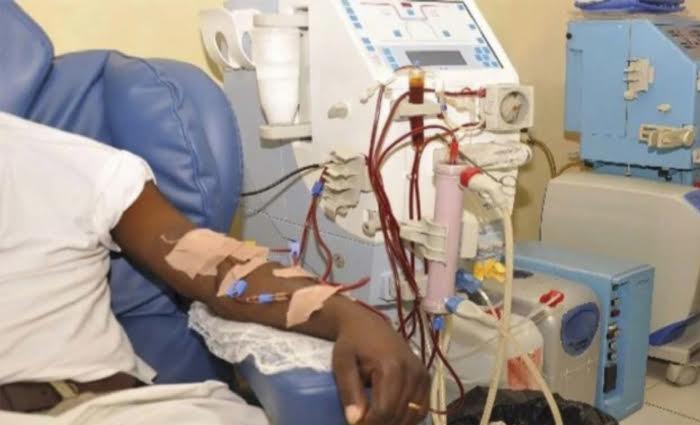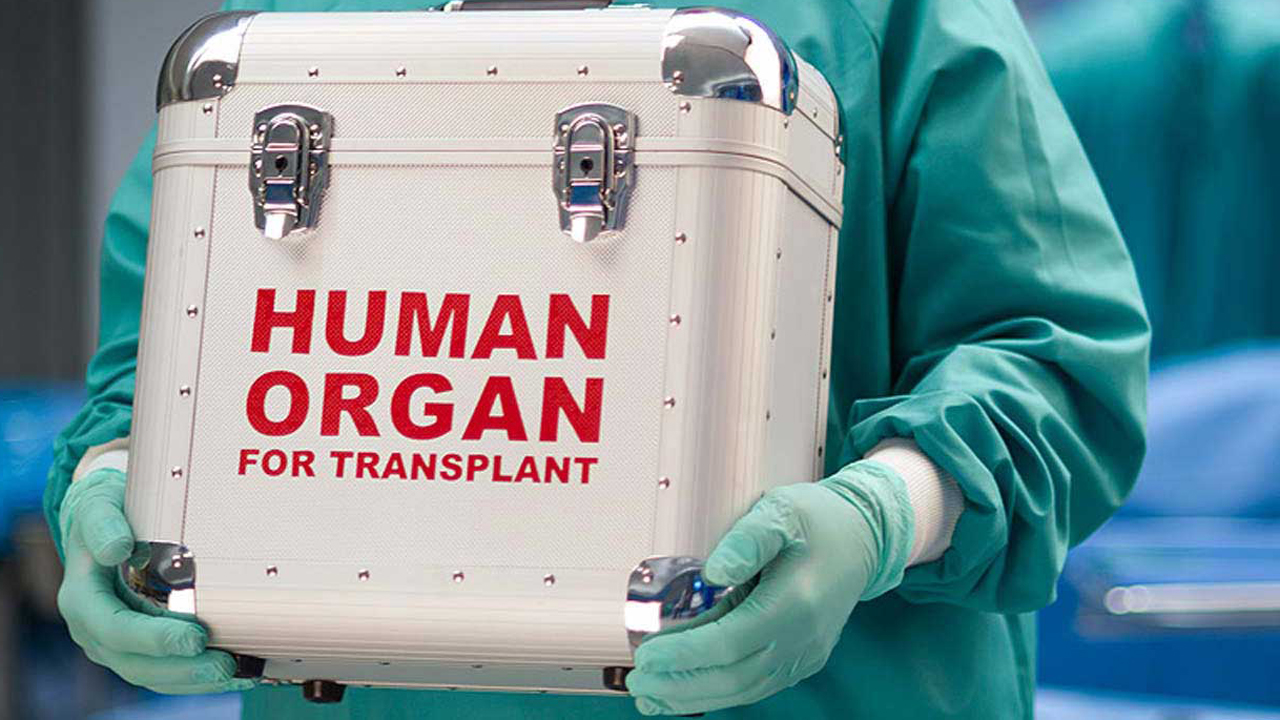
With recent reports of illegal organ harvesting in the country, many Nigerians are concerned about the ugly development and are exploring measures to prevent such activities in Nigerian hospitals, both private and public.
The Plateau State Police Command recently confirmed the arrest of a medical doctor, Noah Kekere, for alleged organ harvesting carried out in his hospital in Jos, the State capital. After investigation it was discovered that the suspect had harvested the kidneys of many people in the area, including other related cases.
Stakeholders in the health sector have argued that it is possible to stop further occurrences of illegal organ harvest in Nigeria if appropriate steps are taken.
Deputy Director Clinical Nutritionist and Dietitian Obafemi Awolowo University Teaching Hospital Complex (OAUTHC), Ile Ife, Osun State, Dr. Ogbonna Obinna Chimela, said section 48 of the National Health Act has made it compulsory that the consent of the client must be sought before organ harvest. Chimela said if this law is enforced, it may be difficult and criminal for anyone to harvest patients’ organs without his or her approval.
He called for enforcement of the provisions of the National Health Act and criminalising of unauthorised organ harvest, as was done against Nigeria’s former Deputy Senate President, Ike Ekweremadu, in the United Kingdom.
On the responsibility of hospitals in preventing organ harvesting, Chimela said hospitals should employ healthcare professionals with impeccable character and put up a complaint box, where patients and clients can freely report any untoward or unprofessional attitude of any of the healthcare professionals for further investigation.
He said patients and their relatives should know their rights and file a suit against any private or public hospital that trample on them.
He said: “There is this medicolegal aspect of medicine that both healthcare professionals and the patients need to be exposed to. The healthcare professionals can sue the client/their relatives if their rights are trampled upon in the line of duty, likewise the patients/clients can sue the health institution/ the health personnel involved in the act.”
He said health workers should try to get regular updates by attending workshops on patient/client relationship and boundaries to know the rules and regulations to respect them and be guided with these principals, while carrying out their duties.
On the role of the government in stopping illegal organ harvesting, Chimela said the government must support doctors and other health professionals by providing an enabling environment with good incentives that encourage them to make Nigeria their place of practice, including health programmes such as National Health Insurance Authority (NHIA), which is very important. He said out-of-Pocket expenditure is a huge deterrent to good health seeking behaviour among Nigerians.
He said partnerships and collaboration with international organisations, non-governmental organisations, civil society, and Health Maintenance Organisation (HMOs) is important to leverage expertise, resources, and support for anti-organ harvest campaigns in the public and private sectors.
He said the victims of organ harvesting are not covered by NHIA, therefore, if the government can enroll all Nigerians into NHIA, it would reduce illegal organ harvesting in the country.
He said the government should engage in policy formulation and implementation to develop and implement national policies and strategies that focus on addressing the incessant organ harvest. This, he said should include policies that make private sector NHIA complaint among other health insurance enrolment that should benefit all Nigerians.
He said: “Government should encourage public awareness and education, launch public awareness campaigns to educate the population about the dangers of engaging in organ harvesting and put preventive measures, among others.

A Consultant Public Health Physician at the Lagos State University Teaching Hospital (LASUTH), Ikeja, Lagos, Dr. Adeleke Kayode, said government needs to empower security agencies, law enforcement agencies, Medical and Dental Council of Nigeria (MDCN) with the support of Nigerian Medical Association (NMA), to fight quackery, evaluate medical practice in Nigeria and reduce the illegal organ harvest.
He said: “I will advise all of us as Nigerians to join hands in handling and fighting organ harvest in the health sector. There should be intra and intersectoral collaborations to fish out bad eggs in the profession.”
Abuja based Medical Doctor, Public Health Physician and Health Promotion Specialist, Dr. Obinna Ebirim, said the rising case of illegal organ harvesting in Nigeria can be attributed to several societal loopholes and distressing shifts in collective values. Ebirim said it reflects a broader moral decadence and an excessive quest for money that have permeated our society.
He said the unethical practice of organ harvesting is often driven by the lure of quick financial gain.
“In a society where economic opportunities are limited and financial disparities are stark, some individuals resort to desperate measures to secure their financial well-being. This relentless pursuit of wealth, at any cost, creates an environment where the illegal organ trade thrives” he said.
Ebirim, however, said there is a concerning erosion of ethical values and principles that previously held societies together. “The sanctity of life and the reverence for the human body, which were once cherished, have been compromised. The loss of these positive values contributes to a situation where individuals are willing to engage in morally reprehensible acts such as organ harvesting,” he said.
He noted that corruption and weak law enforcement allow these illegal activities to persist. “Those engaged in organ harvesting often exploit these weaknesses within our legal system,” he said.
On what governments, hospitals, patients, healthcare workers and others can do to address the menace, he said governments should strengthen the National Health Law to make it stringent against organ trafficking and illegal transplants, with severe penalties for offenders. “Enforcement of these laws should be a top priority,” he said.
He said public awareness is very important such as launching nationwide awareness campaigns to educate the public about the dangers of organ trafficking and the legal, ethical means of organ donation.
He said the government should develop and promote legal and ethical organ transplant programmes, encouraging voluntary donations.
“Hospital management should ensure a culture of transparency in service delivery, including a transparent record-keeping of organ transplants and donations and clear communication of procedures to patients,” he said.
Ebirim said hospitals should be required to report transplant activities intermittently to authorities. He said: “Hospital management should train health workers in their facility to identify signs of illegal organ harvesting and encourage reporting of cases of suspected organ harvesting.
“Hospitals should establish ethical committees to monitor and deal with ethical issues such as transplant procedures, while ensuring adherence to ethical standards.”
Ebirim noted that patients should always demand complete information regarding any transplant or surgical procedure before giving consent. “If in doubt, seek alternative medical opinion. Reporting suspicious activity is very important because if patients or their relatives suspect any irregularities after a surgical procedure or transplant process, they should quickly report them to ethical committees, hospital authorities or law enforcement agencies,” he said.
He said the legislature should support and join the campaign or support advocacy efforts for stringent laws against organ trafficking and support their enforcement.
Ebirim said state governments should consider establishment of a regulatory institution or framework tasked with proactively overseeing the quality of care provided by public and private health facilities.
He said this would ensure a successful journey towards achieving Universal Healthcare Coverage (UHC) and reduce illegal organ harvesting.






